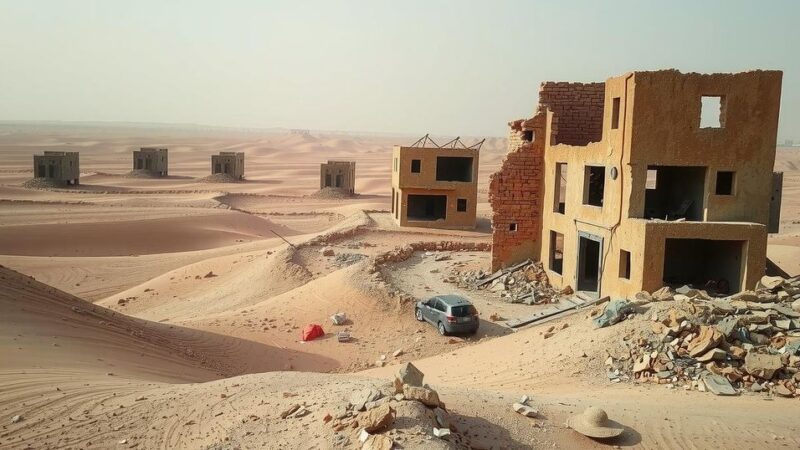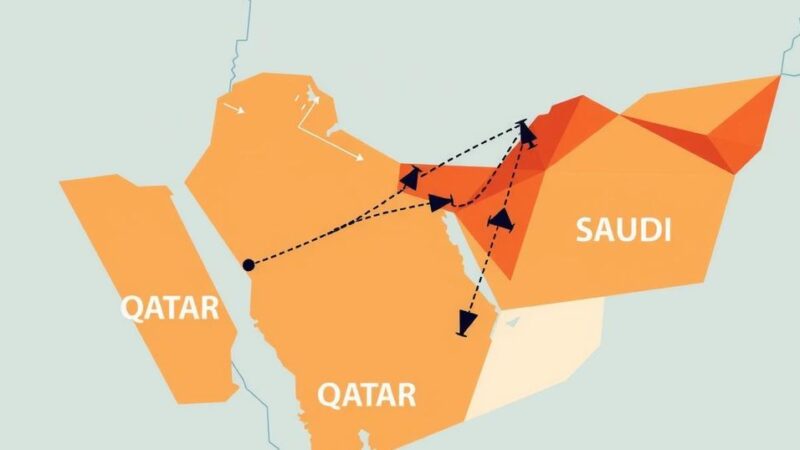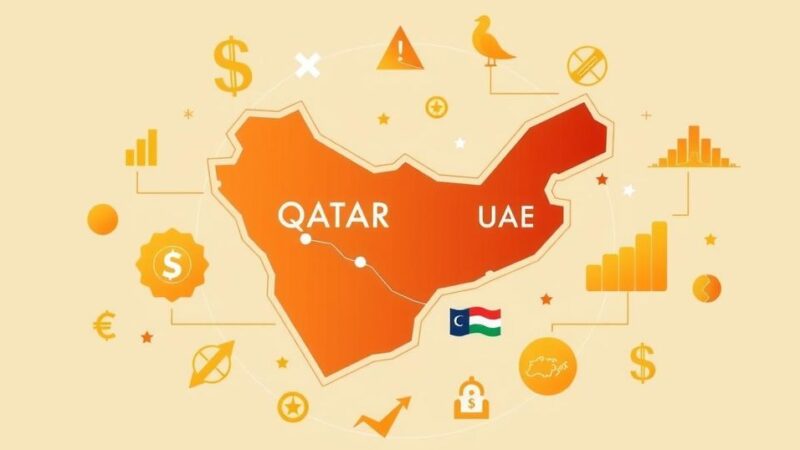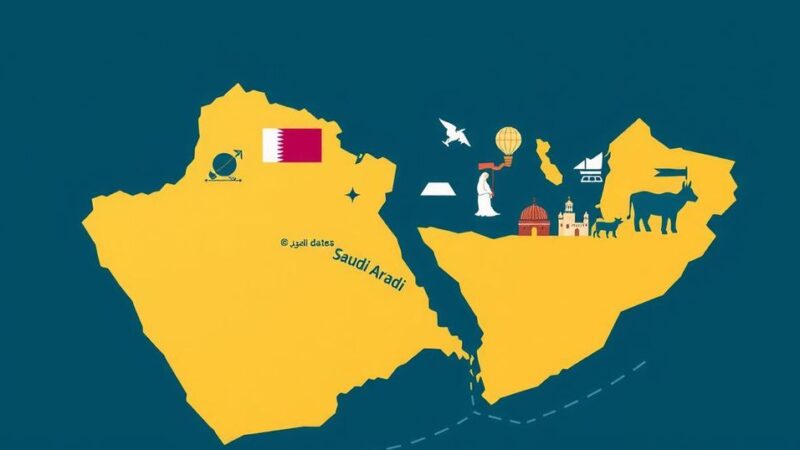Thousands of individuals are fleeing violence in Sudan, crossing into South Sudan at the Joda border. The crisis escalates as over 12.5 million people have been displaced since the outbreak of war in April 2023. Families arrive loaded with belongings, while humanitarian organizations provide essential support to both refugees and returnees at reception areas, amidst critical shortages of resources.
At the Joda border crossing between Sudan and South Sudan, a continuous flow of individuals fleeing violence is evident. Standing a mere 100 meters apart, the two border checkpoints have distinct markers: welcoming flags on the Sudanese side and a dual-language sign indicating the entrance to South Sudan. Families arrive bearing their essential belongings, while many transport items on donkey-drawn carts as they escape the conflict in Sudan. A technology student, Hamed Attaher, expresses relief upon arriving in South Sudan, after a year-long journey from Khartoum and the anticipation of reuniting with his aunt in Juba.
Since the outbreak of war in Sudan in April 2023, more than 12.5 million individuals have been displaced. The humanitarian crisis intensifies at South Sudan’s Upper Nile state, particularly at the Joda border, where about 5,000 individuals cross daily to escape the fighting. The International Organization for Migration (IOM) distinguishes newcomers as either refugees or returnees, many of whom are returning to places they fled during South Sudan’s earlier civil conflict.
South Sudanese communities now host many refugees, with a humanitarian worker noting the close ties between the two sides of the border, previously referred to as North Juba and South Juba. In reception areas, UNHCR-provided tents offer shade while emergency food supplies are distributed to those waiting to continue their journeys to reunite with families. Medical evaluations are conducted by IOM and Médecins Sans Frontières (MSF) to address health needs among new arrivals.
As individuals make their way to communities along the Joda-Renk road, informal settlements emerge, characterized by small businesses and newly formed neighborhoods. Attaher boards a truck with fellow travelers, hopeful that he is nearing the end of his challenging journey. In Renk County hospital, newborn twins, Hosseini and Hasana, care for by their mother, Bakhita, reflect the dire situation faced by many who had recently fled the war.
Approximately 110,000 people have reached Renk County since December, many living in informal settlements like Gosfami that lack sufficient food and water resources. MSF’s physician, Atem Deng Ajak, attests to treating both Sudanese refugees and the local population in the hospital amidst the ongoing humanitarian crisis. Amna, another refugee from Sudan, recounts her escape from violence, demonstrating the struggle many have faced to find safety.
The care and psychological support for patients and their families at the hospital are essential, with MSF’s Rachel Daniel trained to assist mothers coping with the trauma of war. As families use makeshift cooking facilities near the hospital, the ongoing humanitarian situation is exacerbated by funding shortages, particularly following the freeze on assistance initiated by former President Donald Trump’s executive order. Ajak and his team strive to provide adequate care, particularly for families in need.
The ongoing conflict in Sudan has triggered a significant humanitarian crisis, resulting in the mass displacement of individuals fleeing violence into South Sudan. The Joda border crossing serves as a lifeline for refugees and returnees, many of whom endure arduous journeys to reunite with loved ones amid dire living conditions. Humanitarian organizations strive to provide necessary medical care, psychological support, and essential supplies to cope with the overwhelming influx of displaced individuals, highlighting the urgent need for continued international assistance.
Original Source: www.theguardian.com






